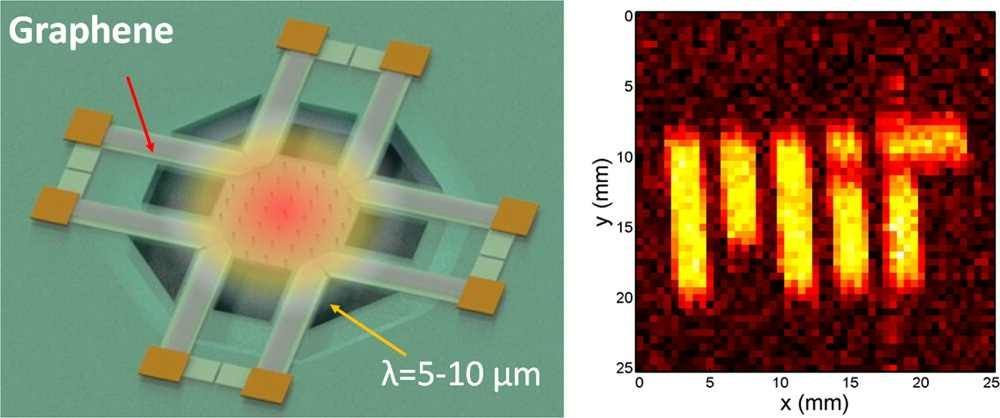Because of its unique chemical and physical properties, graphene has helped scientists design new gadgets from tiny computer chips to salt water filters. Now a team of researchers from MIT has found a new use for the 2D wonder material: in infrared sensors that could replace bulky night-vision goggles, or even add night vision capabilities to high-tech windshields or smartphone cameras. The study was published last week in Nano Letters.
Night vision technology picks up on infrared wavelengths, energy usually emitted in the form of heat that humans can’t see with the naked eye. Researchers have known for years that because of how it conducts electricity, graphene is an excellent infrared detector, and they wanted to see if they could create something less bulky than current night-vision goggles. These goggles rely on cryogenic cooling to reduce the amount of excess heat that might muddle the image. To create the sensor, the researchers integrated graphene with tiny silicon-based devices called MEMS. Then, they suspended this chip over an air pocket so that it picks up on incoming heat and eliminates the need for the cooling mechanisms found in other infrared-sensing devices. That signal is then transmitted to another part of the device that creates a visible image. When the researchers tested their sensor, they found that it clearly and successfully picked up the image of a human hand.
